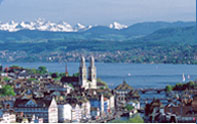Track 4: Development/Architecture of ISIn most of today’s business processes, information systems (IS) play a crucial role. Thereby, information systems have emerged from isolated, company-internal solutions to distributed and open systems. At the same time the business significance of information systems has constantly increased. The responsibility in regard to mission critical decisions such as the availability or performance of information systems has moved from the level of IT departments to the executive level. Furthermore, information systems are no longer regarded as support technologies, but as mission critical assets. This requires a higher flexibility of the different IT systems in order to be able to realize business process related decisions faster. In the context of “Service Science”, the term “Service” is viewed as the realization of business process related functionality using electronic means. Induced by this service-driven environment, the development process of software has changed. Highly scalable service delivery infrastructures have altered the viewpoint of software – essentially software products become services. Thus, software developers are facing new methods and technologies for the development of software solutions. Additionally, new approaches such as agile software development and the use of Frameworks and Open-Source components become more and more important for the development of information systems. In particular the combination of methods and systems is crucial in order to deliver high-quality, reliable, and effective information systems. The goal of this track is to discuss the implications of this emerging field for the development and the architecture of information systems. Topics
Track Chairs
Associate Editors
|






